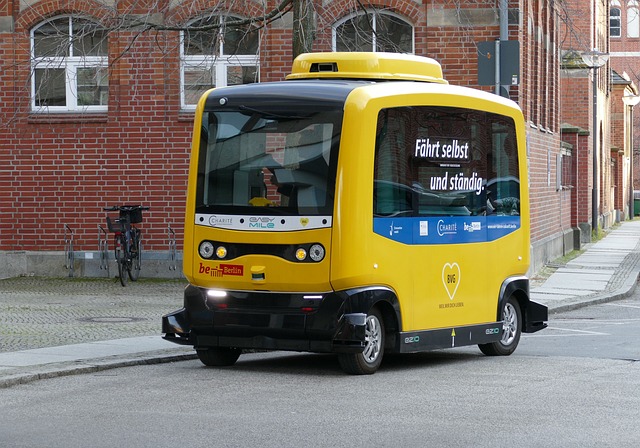The transportation industry is on the cusp of a major revolution, thanks to advancements in artificial intelligence (AI) and the emergence of autonomous vehicles. AI-powered technologies are transforming the way we travel, making transportation safer, more efficient, and environmentally friendly. We explore the future of transportation and the role of autonomous vehicles and AI in shaping it.
Autonomous Vehicles
Autonomous vehicles, also known as self-driving cars, are vehicles equipped with AI systems that can navigate and operate without human intervention. These vehicles rely on a combination of sensors, cameras, lidar, and AI algorithms to perceive their surroundings, make decisions, and control their movements. By eliminating the need for human drivers, autonomous vehicles have the potential to revolutionize transportation in several ways:
Improved Safety: AI algorithms can analyze real-time data from sensors to detect and respond to potential hazards faster than human drivers. Autonomous vehicles have the potential to significantly reduce accidents caused by human error, making roads safer for everyone.
Increased Efficiency: Autonomous vehicles can optimize routes, speed, and traffic flow, reducing congestion and travel time. By communicating with each other and traffic infrastructure, they can coordinate movements and minimize delays, resulting in smoother traffic flow and improved overall efficiency.
Accessibility: Autonomous vehicles have the potential to increase mobility for individuals who are unable to drive, such as the elderly or people with disabilities. They offer a new level of independence and convenience, enabling more people to access transportation services.
AI in Transportation Management
AI plays a crucial role in managing and optimizing transportation systems. AI algorithms can analyze vast amounts of data, including real-time traffic conditions, weather patterns, and historical data, to make intelligent predictions and decisions. Some applications of AI in transportation management include:
Traffic Management: AI-powered systems can monitor and analyze traffic patterns in real-time, allowing traffic controllers to adjust signals, reroute vehicles, and manage congestion more effectively.
Predictive Maintenance: AI algorithms can analyze sensor data from vehicles and infrastructure to predict maintenance needs. This proactive approach helps prevent breakdowns and reduces downtime, ensuring the reliability of transportation services.
Demand Forecasting: AI algorithms can analyze historical data and external factors to predict travel demand. This information helps transportation providers optimize their services, allocate resources efficiently, and meet passenger needs more effectively.
Enhanced User Experience
AI technologies are enhancing the user experience in transportation by providing personalized and convenient services. Some examples include:
Intelligent Navigation: AI-powered navigation systems can consider real-time traffic conditions, weather, and individual preferences to provide optimized route suggestions, saving time and reducing fuel consumption.
Virtual Assistants: AI-powered virtual assistants in vehicles can provide voice-activated control over various functions, such as adjusting temperature, playing music, or finding nearby amenities. These assistants can also provide personalized recommendations based on individual preferences.
Smart Transportation Hubs: AI-powered systems can optimize operations at transportation hubs, such as airports or train stations. These systems can analyze passenger flow, predict congestion, and optimize resources to ensure smooth transitions and minimize delays.
The future of transportation is undoubtedly intertwined with autonomous vehicles and AI technologies. As autonomous vehicles become more prevalent, transportation will become safer, more efficient, and accessible to a wider range of individuals. AI will play a critical role in managing transportation systems, optimizing resources, and enhancing the user experience. The combination of autonomous vehicles and AI has the potential to transform the way we travel, revolutionizing urban mobility, reducing traffic congestion, and contributing to a more sustainable and connected future.
Book Scott Today
Book Scott to keynote at your next event!
Managing Partner at Astor Perkins, TEDx, Top Global Innovation Keynote Speaker, Forbes, Singularity University, SXSW, IBM Futurist, Tribeca Disruptor Foundation Fellow, National Sloan Fellow, Wiley Author, TechCrunch, Winner of Innovation Awards.


















